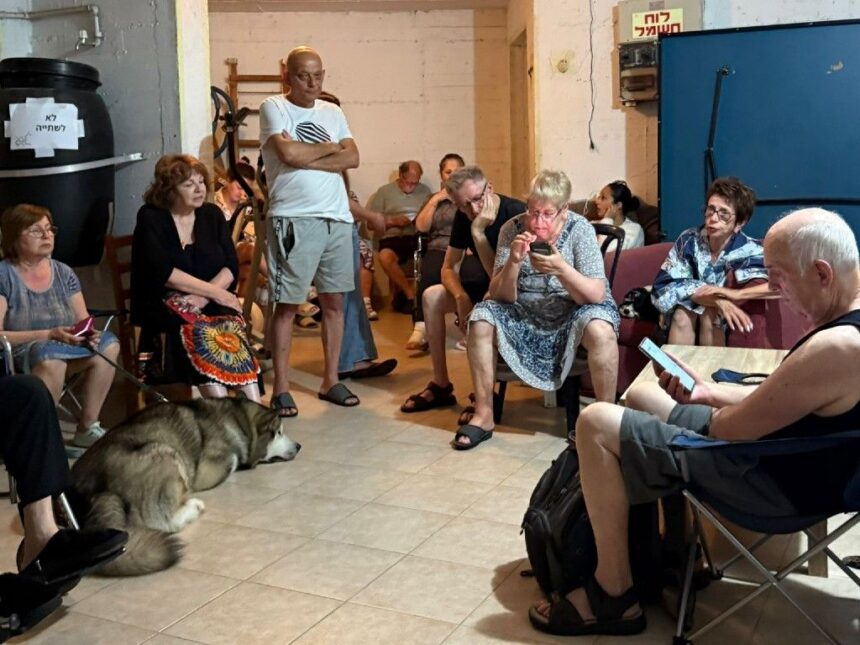As sirens wailed across Israel Tuesday night, Canadian citizens huddled in bomb shelters while Iran launched approximately 180 ballistic missiles toward the country. For many Canadians trapped in the escalating Middle East conflict zone, the experience wasn’t just terrifying—it highlighted what they describe as an alarming lack of support from their own government.
“We’ve been completely abandoned,” said Montreal resident Sarah Katz, who traveled to Tel Aviv for a family wedding three weeks ago. “Other countries are actively evacuating their citizens while Canada offers nothing but generic travel advisories we’ve already seen.”
The missile barrage, which Iran claimed was retaliation for Israel’s killing of Hezbollah leader Hassan Nasrallah, marks a dangerous new phase in regional hostilities. While Israel’s sophisticated Iron Dome defense system intercepted many incoming projectiles, the psychological impact on civilians—including visiting Canadians—has been severe.
Foreign Affairs Minister Mélanie Joly stated Wednesday that approximately 1,280 Canadians are currently registered in Israel, though the actual number is likely higher as registration remains voluntary. Despite growing pleas for evacuation assistance, the Canadian government maintains there are still commercial flights operating from Tel Aviv’s Ben Gurion Airport.
“Commercial options exist, but they’re either prohibitively expensive or sell out within minutes,” explained Vancouver businessman David Cohen, who has been trying to leave Israel for five days. “When I called the emergency assistance line, I was told to ‘keep trying’ commercial flights. That’s not a solution when you’re in a war zone.”
In stark contrast, several European nations including France, Germany and Poland have begun military-assisted evacuations of their citizens. The United States has also indicated readiness to deploy military transport if necessary for American nationals.
Canadian opposition leaders have seized on the government’s perceived inaction. Conservative leader Pierre Poilievre demanded “immediate concrete steps” to bring Canadians home safely, while NDP foreign affairs critic Heather McPherson called the current approach “woefully inadequate.”
A spokesperson for Global Affairs Canada told CO24 News that the situation remains “fluid” and Canadians should “monitor updates to travel advisories.” The department also confirmed that the Canadian embassy in Tel Aviv remains operational but with reduced staff.
For Toronto resident Michael Levy, trapped in Jerusalem with his elderly parents, such statements offer little comfort. “My father needs medication we can’t easily obtain here. We’ve spent thousands trying to book flights that keep getting canceled. What exactly is our government doing besides watching this unfold?”
Security experts speaking to CO24 World News suggest the current crisis highlights systemic gaps in Canada’s emergency response capabilities for citizens abroad. Former diplomat Robert Mason noted that “unlike some allies, Canada lacks dedicated military assets specifically designed for civilian evacuation operations in conflict zones.”
As tensions continue to escalate in the region, with Israel promising a response to Iran’s missile attacks, stranded Canadians face growing uncertainty. The conflict shows no signs of de-escalation, raising serious questions about when—or if—these Canadians will be able to return home safely.
“I love my country, but right now I feel forgotten,” said Katz. “We deserve better than empty promises and automated email responses during the most frightening moments of our lives.”
As this crisis unfolds, will Canada finally implement the robust emergency extraction protocols that citizens in conflict zones have been demanding for years, or will Canadians abroad continue to feel abandoned when they need their government most?










